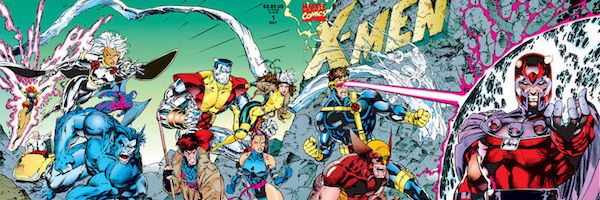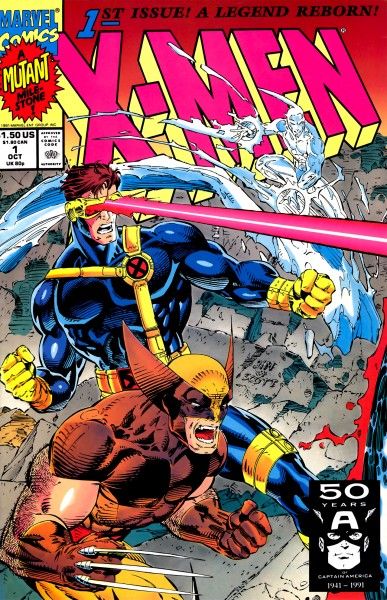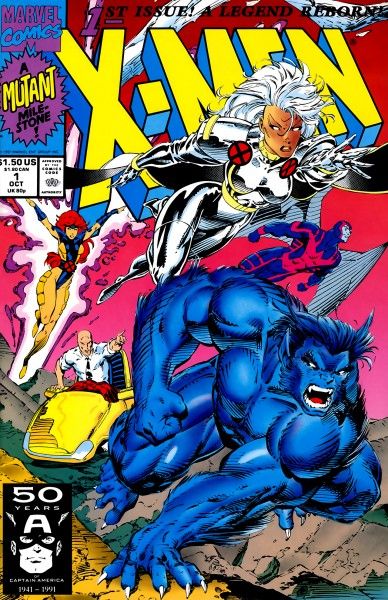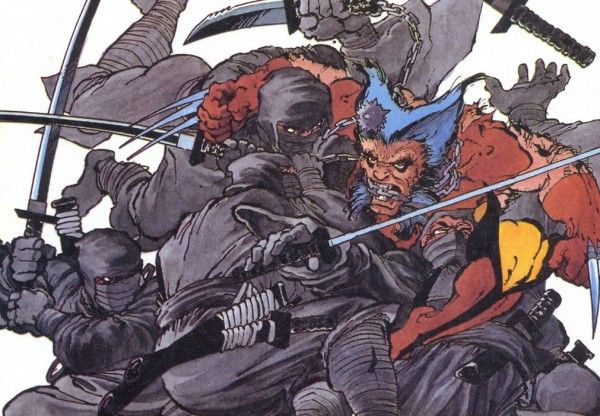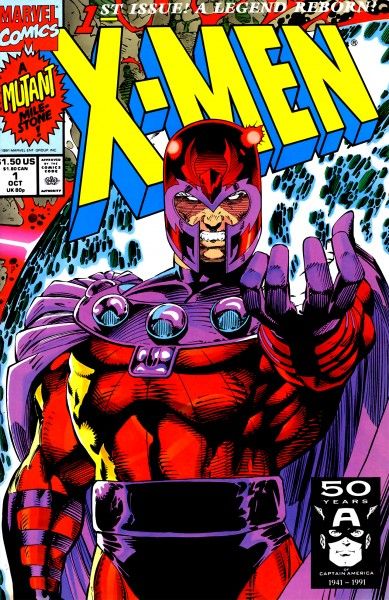With over 15 years spent writing for Marvel's "X-Men" comics, Chris Claremont co-created many of the properties most enduring and endearing characters like Rogue and Mystique, scripted the iconic arcs "The Dark Phoenix Saga" and "Days of Future Past" with John Byrne, and helped to develop the fan-favorite character Wolverine into one of the franchise's most recognizable heroes. And yet the surge of the comics' popularity in the 90s has fallen off in recent years. Claremont lays the blame on Hollywood.
In a chat with Hugh Sheridan during New York Comic-Con (via BC), Claremont gave a candid account of his feelings regarding 20th Century Fox's ownership of the X-Men film franchise, the effect that ownership has had on the title's comics as of late, and the rise of the Inhumans. As great as it's been for longtime comic book fans to see their favorite properties come to life on the big screen over the last 15 years or so, there are always going to be casualties when multi-billion-dollar corporations get involved.
Here's what Claremont had to say about the state of "X-Men" comics and their related films:
HS: When you started on X-Men the series was close to cancellation, and over the 16 years you wrote the book it became Marvel’s leading franchise. Your X-Men #1 from 1991 remains, I think, the highest selling American comic ever. But in the last few years the X-Men have faded a little and they are no longer the industry’s top sellers, what advice would you give Marvel to get them back on top?
CC: That has nothing to do with comic sales, that has everything to do with the fact that the film rights are controlled by a rival corporation.
I guarantee you that if 10 years ago, when Marvel was approached by Disney, if the X-Men film rights were owned by Marvel Studios and not Fox the X-Men would probably still be the paramount book in the canon. The reason for the emphasis on the other titles is because Marvel / Disney control the ancillary film rights whereas all the film rights for the FF- the Fantastic Four – and the X-Men are controlled by Fox who has no interest in the comic books.
So I think the corporate publishing attitude is: “why would we go out of our way to promote a title that will benefit a rival corporation’s films when we could take that same energy and enthusiasm and focus and do it for our own properties?”
Hence the rise of the Inhumans as the new equivalent of the mutants. I could wish for something else but it ain’t my 5 billion dollars.
Claremont makes a fantastic point here, one that's likely shared and echoed by "X-Men" fans the world over. Disney/Marvel seems perfectly happy to focus on the stories, characters, and properties that they can slap a franchise tag onto rather than put effort into stories a corporate competitor can mine. But what about the possibility of the X-Men returning to Disney/Marvel?
HS: So you think that eventually those characters will come back up? That those characters are so compelling that eventually, if the rights issues are resolved, they will go back to being the top-sellers? Is it just a matter of promotion?
CC: It’s not a matter of promotion, it’s purely a matter of ownership. If at some point Fox decides that the X-Men properties are no longer lucrative I’m sure that they will cut a deal with Disney. But I also expect that the deal they would want to cut would be extra-ordinarily expensive and Disney or Marvel might just as easily say “screw it” we love the X-Men but we are not going to hurt ourselves to get it because we have our other properties that we own that are doing far better. If you want to give it back or take a reasonable deal that’s one thing, if you’re just going to go crazy screw you.
Those are questions better posed to [Marvel Editor-in-Chief] Axel [Alonso] and the Marvel group than me, my opinion at this point is effectively as valid as any fan in this building.
HS: Well, you are the architect –
CC: No, no – we are talking business, we are talking corporate – that has absolutely no impact at all.
In other words, don't expect this transition to happen anytime soon. Fox isn't likely to give up the box office boons of X-Men or Deadpool, not after X-Men: Age of Apocalypse took in well over $500 million worldwide and Deadpool has easily coasted past the $750 million mark. The studio can continue to eat the cost of flops like Fantastic Four as long as their other properties remain popular. Fingers crossed that James Mangold's Logan continues the more positive trend, if only to reward the director and Hugh Jackman's last hurrah with Wolverine.
We're in a strange time where nostalgia-fueled properties partially dictate just which franchises get the green light and which of those end up being successful. Then, those successes or failures determine which source properties (ie comics, novels, etc) continue to be published. And as studios continue to mine more and more obscure properties while supporting less and less new and original content, it's plain to see that this approach will work for a while, but is ultimately not sustainable. It's the snake eating its own tail. Luckily, when the day comes that everything's already been adapted multiple times over, the way will be cleared for more original creative content to come to the forefront once again.
Be sure to head over to BC for much more from Claremont on his career, his thoughts on the industry, and other potential projects he has coming up. Do you agree with Claremont that the split over "X-Men" between Marvel Comics and 20th Century Fox is hurting the comics property? Let us know your thoughts in the comments below!

